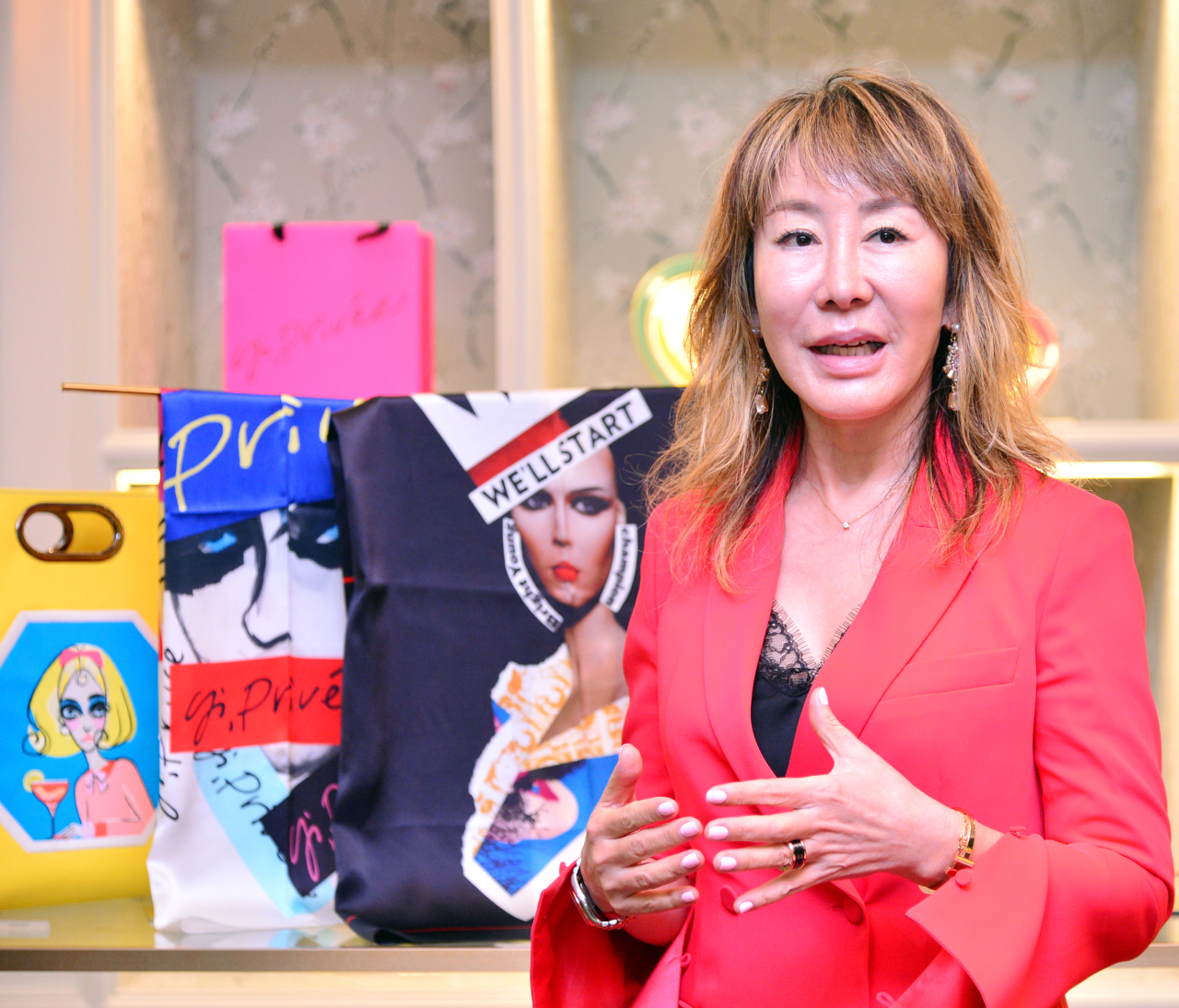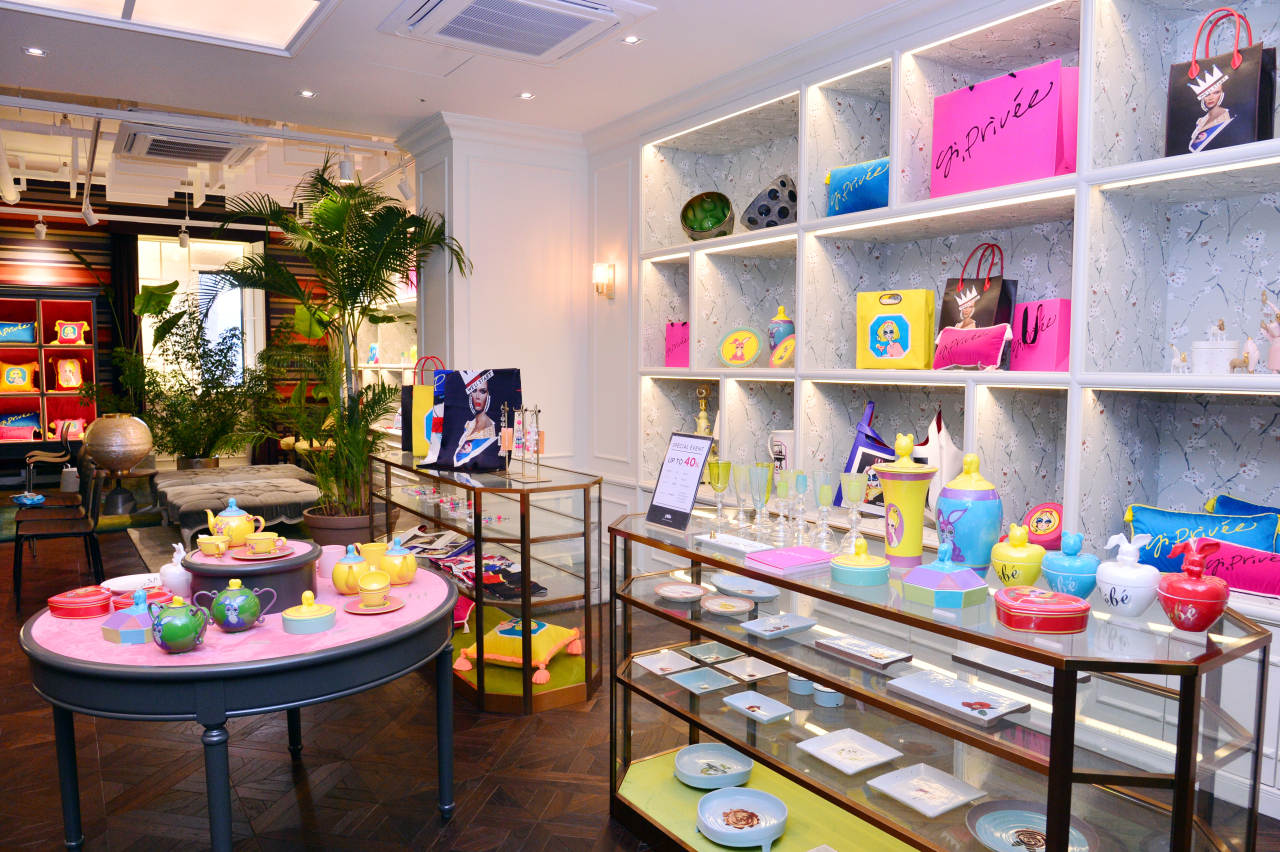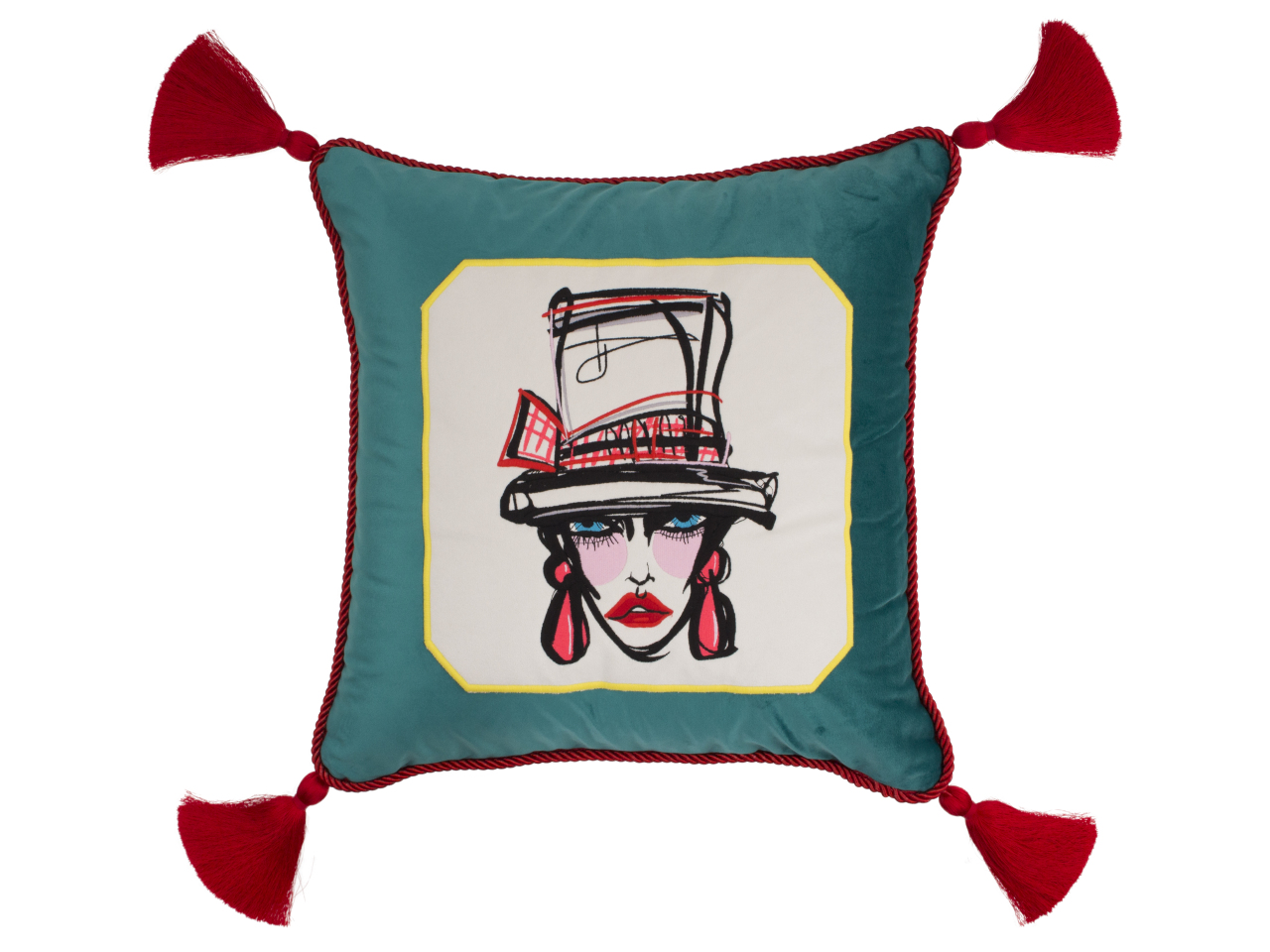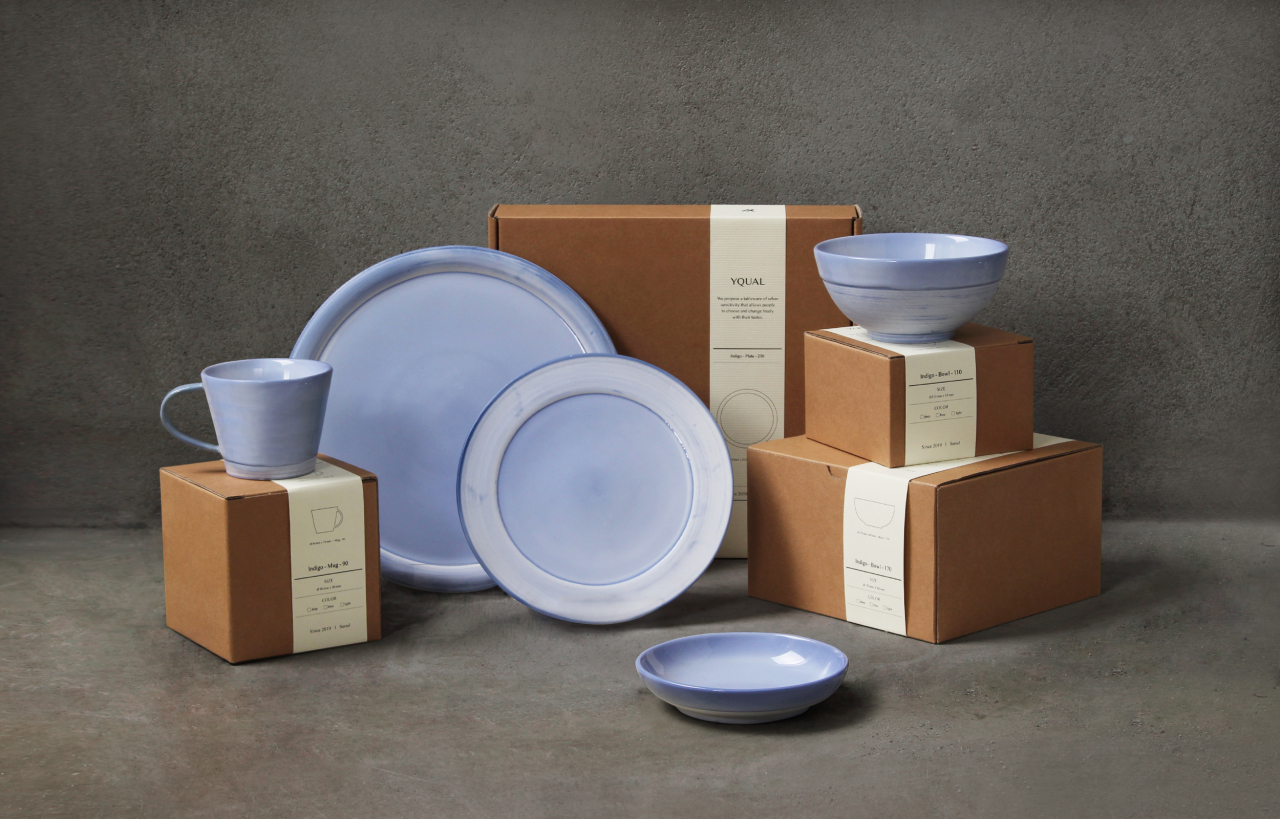For a pottery artist leading a tableware brand, the table is where the magic begins, then spreads to the whole house.
Yido, launched in 1990, is a pottery ware brand led by Yi Yoon-shin. Yi has achieved a unique success with Yido. As the local upscale tableware market was ruled by foreign brands, Yido carved out its place as a handcrafted brand inspired by traditional practices.
“Though we have worked on interpreting traditional pottery in a modern language, the innate characteristic of pottery is rather crude and rough,” Yi, the founder and CEO of Yido, said during an interview with The Korea Herald at its flagship store in Gahoe-dong, central Seoul.
 |
Yi Yoon-shin speaks during an interview with The Korea Herald at Yido’s flagship store in Gahoe-dong, central Seoul. (Park Hyun-koo / The Korea Herald) |
 |
Yi Privee’s showroom at Yido flagship store (Park Hyun-koo / The Korea Herald) |
Recently launched spinoff brand Yi Privee, on the other hand, flaunts young designs with vivid colors. It also offers a range of homeware products in addition to tableware. For Yi Privee, Yi was inspired by 18th century European salon culture.
“People gather at salons to pursue and share art. Yi Privee takes one step further, merchandises the ideas and retails the products,” she said, dressed in a vivid red suit. “It can show how women can pursue art and their taste through their homes.”
 |
Cushion printed with character named Madame Victoire, created by Yi Privee (Yido) |
Though there are more affordable homeware brands from global fashion firms, such as Zara Home or H&M Home, Yi thinks that Yi Privee takes a different route as a brand that encompasses each artist’s identity.
“The identity of the label lies in that artists are involved in product designs,” she said, explaining that artist Park Sang-hee currently helms the project for Yi Privee. This season’s Yi Privee lineup showcases teapots, cups, cushions, key rings and more.
Apart from Yi Privee, Yi also launched Yqual, which carries on the identity of Yido at a more affordable price.
 |
Indigo line products under Yqual (Yido) |
Such new launches may indicate that Yido is thirsty for a change -- and new challenges. After all, it has been almost 30 years since Yi started the firm. After studying in Japan, witnessing how the Japanese appreciate their pottery products, Yi started the brand with a small shop.
“I did not know I would be doing this for such a long time,” she said. “I just focused on what was happening. The company got bigger, I started to manage a studio, an art hall and more came.”
Now Yi has a flagship store in central Seoul and a studio in Yeoju, Gyeonggi Province, where Yido products are handcrafted by artisans.
The past three decades taught Yi to take pride in Korean pottery products but also to appreciate other types of tableware, including Western porcelain.
“It is a matter of taste,” Yi said. “I am a pottery artist, but sometimes I am attracted to European porcelain brands.”
“There was a time when I used to think only my works were beautiful. But not anymore,” she said. “European porcelains are strong and beautiful, quite cold. Korean ceramic products have this warmth, but can be quite inconvenient as they are fragile,” she said.
For those who have not experienced the crude beauty of Korean pottery, Yi recommends starting with small products, such as a mug.
“Once people learn the charm of pottery, it is hard to use other products. There is this comfort. I recommend people use one simple pottery product first, like a mug, then they will slowly see their tables becoming full of pottery ware,” Yi said.
Yi thinks that the tableware scene here has greatly changed over time. Three decades ago, it was unthinkable to use the pottery products that we are using nowadays, according to Yi.
“People used to display them in a glass cabinet, take them out only on special days, thinking they are too valuable for everyday life. They used stainless products instead. Some even threw pottery away, thinking it is unpractical,” she said.
“But people are now starting to appreciate the artistry of the products. They realize that the products have their own beauty, and the beauty is enhanced when they are used, and that users can feel emotional stability through using them.”
By Im Eun-byel (
silverstar@heraldcorp.com)











![[Today’s K-pop] Blackpink’s Jennie, Lisa invited to Coachella as solo acts](http://res.heraldm.com/phpwas/restmb_idxmake.php?idx=644&simg=/content/image/2024/11/21/20241121050099_0.jpg)